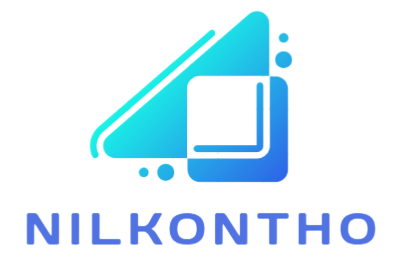As businesses progressively look for productive, adaptable, and secure strategies for preparing installments, virtual terminal suppliers have risen as key players in the installment-preparing scene. Businesses can streamline the handling of persevering installments remotely through mail, phone, or online channels with virtual terminals. This article looks at the rise of virtual terminal suppliers in the Joined together States, their points of interest and impediments, and how they are modifying how businesses handle exchanges.
What is a Virtual Terminal?
A virtual terminal is a computer program application that licenses businesses to handle credit card installments without requiring a physical point-of-sale (POS) terminal. Instead of swiping or inserting a card into a hardware contraption, trades are entered physically utilizing a web-based interface or a versatile app. Virtual terminals are ordinarily utilized by businesses that handle installments over the phone or through mail, giving a flexible arrangement for further installment processing.
Benefits of Virtual Terminal Providers:
1. Adaptability and Accessibility:
One of the primary focal points of virtual terminals is their adaptability. Businesses can acknowledge installments from any place with a web association, making it perfect for further or versatile operations. This is especially useful for service-based businesses, specialists, and little ventures that may not have a physical storefront. The capacity to prepare installments from any area improves comfort and openness for both businesses and their customers.
2. Ease of Use:
Virtual terminals are outlined to be user-friendly, permitting businesses to rapidly and effectively prepare exchanges. The computer program interface is ordinarily natural, requiring as it were essential data such as the customer’s credit card number, close date, and charging address. This ease of utilization minimizes the learning bend and permits workers to handle exchanges with negligible training.
3. Integration with Commerce Systems:
Many virtual terminal suppliers offer integration with other commerce frameworks, such as bookkeeping programs, client relationship administration (CRM) devices, and stock administration frameworks. This integration streamlines the installment preparation, computerizes the information section, and gives a together see of budgetary exchanges. Integration improves operational proficiency, diminishes manual blunders, and bolsters more viable budgetary management.
4. Upgraded Security:
Security is a basic concern in installment preparation, and virtual terminal suppliers regularly incorporate progressed security highlights to ensure touchy data. These highlights may incorporate encryption, tokenization, and compliance with Installment Card Industry Information Security Standard (PCI DSS) rules. By executing vigorous security measures, virtual terminal suppliers offer assistance to defend against extortion and information breaches, guaranteeing that exchanges are handled securely.
5. Cost-Effectiveness:
Virtual terminals can be a cost-effective arrangement for businesses, particularly when compared to conventional POS frameworks. The nonappearance of physical equipment and related support costs can result in lower forthright costs. Numerous virtual terminal suppliers offer competitive estimating models, such as pay-as-you-go or subscription-based plans, which can be more reasonable for small businesses and startups.
Challenges and Considerations:
1. Web Dependency:
Since virtual terminals depend on a web network, businesses must guarantee they have a solid association to handle exchanges easily. Web blackouts or moderate associations can disturb installment preparation and affect client encounters. Businesses ought to consider reinforcement arrangements, such as versatile information or auxiliary web associations, to moderate potential network issues.
2. Exchange Fees:
While virtual terminals can offer fetched reserve funds, exchange expenses are a critical thought. Suppliers regularly charge an expense per exchange, which can shift based on variables such as the sort of card utilized, exchange volume, and handling hazard. Businesses ought to carefully survey expense structures and compare suppliers to discover an arrangement that adjusts to their budget and exchange needs.
3. Constrained POS Capabilities:
Virtual terminals are planned for further installment handling and may not offer the same highlights as conventional POS frameworks. For illustration, they may need capabilities for overseeing in-store stock, creating nitty gritty deals reports, or dealing with complex exchanges. Businesses that require comprehensive POS usefulness may be required to supplement their virtual terminal with extra frameworks or tools.
4. Client Experience:
While virtual terminals give comfort for businesses, they may affect the client encounter in an unexpected way than in-person exchanges. Clients may be required to give extra data, such as charging addresses, which may present contact into the installment preparation. Guaranteeing that the installment preparation is smooth and user-friendly is basic for keeping up positive client interactions.
Choosing the Right Virtual Terminal Provider:
1. Evaluating Highlights and Functionality:
When selecting a virtual terminal supplier, businesses ought to survey the highlights and usefulness advertised by diverse suppliers. Key contemplations incorporate ease of utilization, security highlights, integration alternatives, and client bolster. Suppliers that offer customizable arrangements, such as repeating charging or invoicing, may superior meet the needs of particular commerce models.
2. Assessing Estimating and Fees:
Comparing estimating and charge structures is significant in choosing the right virtual terminal supplier. Businesses ought to audit exchange expenses, month-to-month benefit charges, and any extra costs related to the utilization of the virtual terminal. Straightforward estimating and adaptable plans that oblige shifting exchange volumes can offer assistance to businesses that oversee costs effectively.
3. Checking Client Support:
Reliable client bolster is fundamental for tending to any issues or concerns that may emerge with virtual terminal preparation. Businesses ought to assess the level of back given by potential suppliers, counting accessibility, responsiveness, and bolster channels. A supplier with solid client back can offer assistance guarantee smooth installment handling and resolve any issues promptly.
Final Counsel:
Virtual terminal suppliers have revolutionized the installment handling scene by advertising businesses an adaptable, open, and cost-effective arrangement for dealing with exchanges. With benefits such as ease of utilization, improved security, and integration with commerce frameworks, virtual terminals cater to the needs of inaccessible and portable businesses. Be that as it may, businesses must moreover consider challenges such as web reliance, exchange expenses, and client involvement when selecting a supplier. By carefully assessing highlights, estimating, and bolstering, businesses can discover the right virtual terminal arrangement to upgrade their installment preparation capabilities and move forward, by and large, operational productivity.
